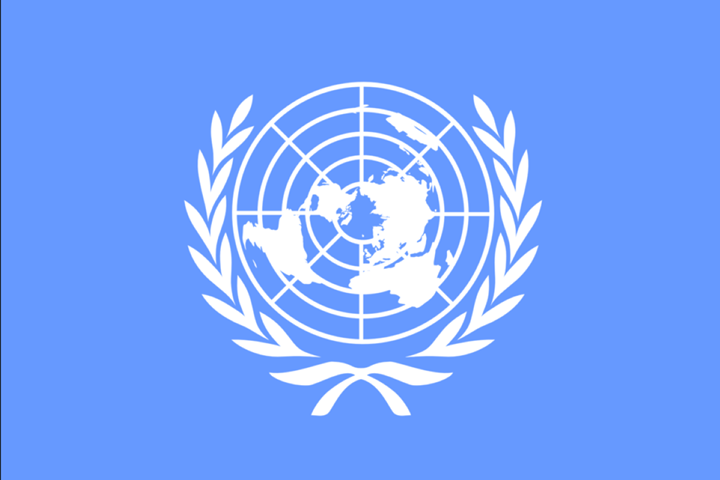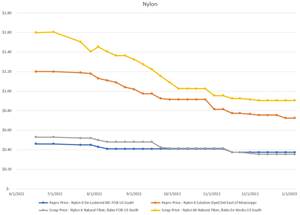UN Plastics Treaty Negotiations End Without Agreement
The goal of creating a legally binding instrument by the end of 2024 will not be met, but negotiations will continue in 2025.
The fifth session of the Intergovernmental Negotiating Committee (INC-5) has ended and, as many delegates feared, did not produce a binding instrument in time to meet the UN Environment Program’s (UNEP) goal of creating a binding agreement to end plastic pollution. The session was held Nov. 25–Dec. 1 in Busan, South Korea.
Ambassador Luis Vayas Valdivieso, the chair of INC-5, opened the final plenary session with a statement acknowledging that agreement would not be reached before the session adjourned.

More than 3,300 delegates participated in ICN-5 as delegates from member countries or observers. Source: Public Domain.
“…as we stand here today, we must acknowledge that we have not yet reached the summit of our efforts. While the peak is now within sight, our journey will only conclude when we have successfully achieved our objectives,” Valdivieso says.
The committee met for the fifth time since resolution 5/14 was adopted in 2022, establishing its mandate to develop a legally binding instrument to end plastic pollution. More than 3,300 delegates participated, including members representing over 170 nations.
A key sticking point was the text of Article 3, draft text of which set goals to eliminate problematic plastic products and chemicals of concern, and the inclusion of Article 6, which would set a cap on the supply of plastic resin. Many delegations see a binding cap and regulations on materials as key to a comprehensive plan to reduce pollution from plastic. Others expressed that they felt such rules would hurt business and constrain development.
Delegates met in closed meetings to negotiate each article of the text, submitting proposed changes to a working document called a non-paper and reporting proceedings at the plenary sessions.
A statement by Iran proposed that countries should focus on building up recycling capacity, and then determine if some products are problematic and should be eliminated. “If a country decides to shift to alternative plastics or materials, those choices should be made nationally,” the statement reads.
A delegate from Rwanda read a statement on behalf of 85 countries, supporting a binding target on production and a phaseout of chemicals of concern. A delegate from Ghana pointed out that African countries produce only 5%, and consume only 4%, of the world’s plastic, yet must deal with the environmental consequences.
A statement from Uganda voiced its opposition to deciding on measures by voting, stressing the importance of reaching consensus on treaty provisions. A delegate from Kuwait, speaking on behalf of a group called the “like-minded countries” echoed this concern, and stated that “we have observed attempts to stretch this mandate beyond its original intent to end plastic pollution.”
A delegate from Mexico read a statement on behalf of a large group of nations voicing support for prescriptive rules in the treaty, saying: “A treaty without clear, legally binding rules, is not acceptable.”
Chris Jahn, council secretary of the International Council of Chemical Associations, said in a statement that plastic pollution could best be addressed by focusing on creating a circular economy for plastics. “The treaty can send the right signals, such as recycled plastic targets in national action plans and guidance to design plastics for reuse and recycling, that can accelerate our transition from a linear to circular economy. We are encouraged to see progress on these issues at INC-5,” Jahn says.
The Biden administration expressed disappointment in the failure to reach a legally binding international agreement. “While the global movement to reign in the urgent threats of plastic waste in the environment has gained tremendous momentum, a small group of countries and producers stood in the way of progress to protect their profits and perpetuate an inadequate status quo,” says a statement from Sean Savett, spokesperson for the National Security Council.
The meeting was adjourned without a resolution on the final text. Although INC-5 was scheduled to be the final session, talks are now expected to continue at future sessions yet to be scheduled. The chair’s text document, with many options and bracketed future possibilities, will serve as the basis for these negotiations.
Related Content
UN Intergovernmental Negotiating Committee Holds Third Round of Plastics Treaty Negotiations
Over 1,900 delegates met in Nairobi to discuss treaty provisions aimed at the reduction of plastic pollution.
Read MoreBreaking News From NPE2024
Here is a firsthand report of news in injection molding, extrusion, blow molding and recycling not previously covered.
Read MoreRecycled Material Prices Show Stability Heading into 2023
After summer's steep drop, most prices leveled off in the second half.
Read MoreUN Group Completes 2nd Meeting Aimed at Developing Agreement on Plastic Pollution
Intergovernmental Negotiating Committee prioritized consensus building and reviewed possible content of binding instrument.
Read MoreRead Next
Beyond Prototypes: 8 Ways the Plastics Industry Is Using 3D Printing
Plastics processors are finding applications for 3D printing around the plant and across the supply chain. Here are 8 examples to look for at NPE2024.
Read MoreFor PLASTICS' CEO Seaholm, NPE to Shine Light on Sustainability Successes
With advocacy, communication and sustainability as three main pillars, Seaholm leads a trade association to NPE that ‘is more active today than we have ever been.’
Read More













